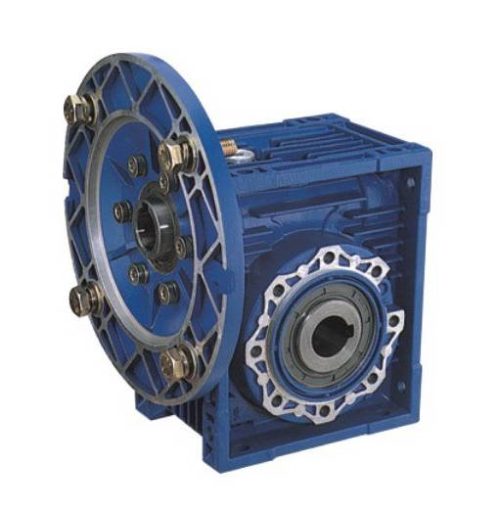Industrial gearboxes are embedded systems that deliver mechanical energy to an output device. They modify the torque, speed, and rate of rotation to convert energy into a compatible format. Industrial gearboxes are designed to manage multiple tasks simultaneously, at great speeds for prolonged periods.
The majority of an industrial gearbox is made of brass, aluminum, or iron and while its primary objective is to increase torque, they also lessen the original mover shaft’s activity. This means the output device rotates at a slower speed, which increases the torque. There are several types of industrial gearboxes to choose from, as well as customized options. This blog will discuss the primary types of industrial gearboxes as well as the solutions available from Superior Gearbox.
What Are the Different Types of Industrial Gearboxes?
Industrial gearboxes are used throughout many industries, and there are a variety of types available to meet these diverse needs. Let’s take a look at some of the most widely-used industrial gearboxes.
Worm Gears

Worm gearboxes perform heavy-duty functions. They are compact and have a high load capacity while also being the smoothest and quietest gear system available. Worm gearboxes feature a large diameter screw that aligns the teeth in a machine’s periphery. Other key characteristics of worm gears include:
- They provide precision linear bearings and reduced noise levels
- They offer high ratio speed reduction and can be used to increase torque
- They are frequently used in smaller spaces and when large gear refinements are required
Helical Gears
Helical gearboxes feature teeth cut to a fixed angle to provide the greatest grind power when it turns in the same direction. They can transmit motion and power between right-angle or parallel shafts. They are smaller in size than other industrial gearbox options, use less power, and are frequently used in high-power and high-load applications. Some common applications for helical gears include rubber and cement production as well as other manufacturing applications. They are also used in low-power applications, such as grinders, coolers, and conveyors. Helical gears provide several unique benefits, such as:
- High efficiency
- Low oscillation with less noise
- Reliable meshing performance
- Stable transmission
Bevel Gears
Known as power transmission mechanical components, bevel gears are primarily used to adjust shaft rotational direction. They reduce speed while raising torque in non-parallel rotating shafts. Bevel gears feature curved teeth positioned along cone-shaped surfaces that are adjacent to the rim of the unit. They accommodate rotary motions between irregular shafts and are necessary to many industries, including aeronautics, pharmaceuticals, mining, textiles, and more.
Key advantages of bevel gears include:
- Space-saving
- Able to transmit great amounts of power efficiently
- Reduced risk of slippage
Spur Gears
Known for their cylindrical pitch surfaces, spur gears reliably convey power and movement from one shaft to another. Featuring teeth that fit parallel to the shaft, they have no thrust load and can improve machinery’s running speed while increasing torque. They are commonly used in industrial applications that include speed reducers, gear pumps, conveyor systems, transmissions, motors, mechanical transportation systems, and more.
In industrial applications, spur gears provide several advantages, such as:
- They work well in limited space environments
- They are well suited for driving systems as they transmit greater power efficiently
- They don’t have any slippage
- They offer a wide spectrum of transmission proportions as well as excellent performance and secure processing
Custom Gearboxes

While standard gearboxes can meet the requirements of most mechanical OEM applications, developing a custom-designed gearbox provides many unique performance advantages. Whether your needs are related to size, materials, speed, or low backlash requirements, customization allows for every specification to be met. Developing a custom industrial gearbox solution also allows OEMs to be involved in the entire process from design to production.
Custom gearboxes are ideally suited for equipment featuring unique torque requirements, or to replicate outdated or discontinued components. Since they are tailored to address the needs of even high-performance applications, they easily integrate into existing equipment. Working with a custom gearbox manufacturer like Superior Gearbox provides you with a component fabricated to meet all of your precise needs.
Industrial Gearboxes From Superior Gearbox
Superior Gearbox has been developing market and customer-specific industrial gear drives for over 30 years. In addition to our diverse standard product line, we also partner with customers during the design process to develop specialty products tailored to application-specific needs. Whether a job requires modifying an existing product, reverse engineering, or developing a new design from scratch, our knowledge and experience enable us to deliver perfectly crafted final products.
In addition to all of the standard gearboxes mentioned above, Superior Gearbox offers several other product line options. We provide customized industrial gearboxes with each element tailored to meet the needs of even the most challenging power transmission application. Our custom solutions are developed according to your timeline and budget.
Superior Gearbox: For All Your Industrial Gearbox Needs
There are many varieties of industrial gearboxes to choose from, and depending on the needs of your application, developing a customized solution may be the best solution. Superior Gearbox carries all types of standard gearboxes and can also modify any product to meet your exact requirements. To get in touch with an expert about our solutions, contact us today.

